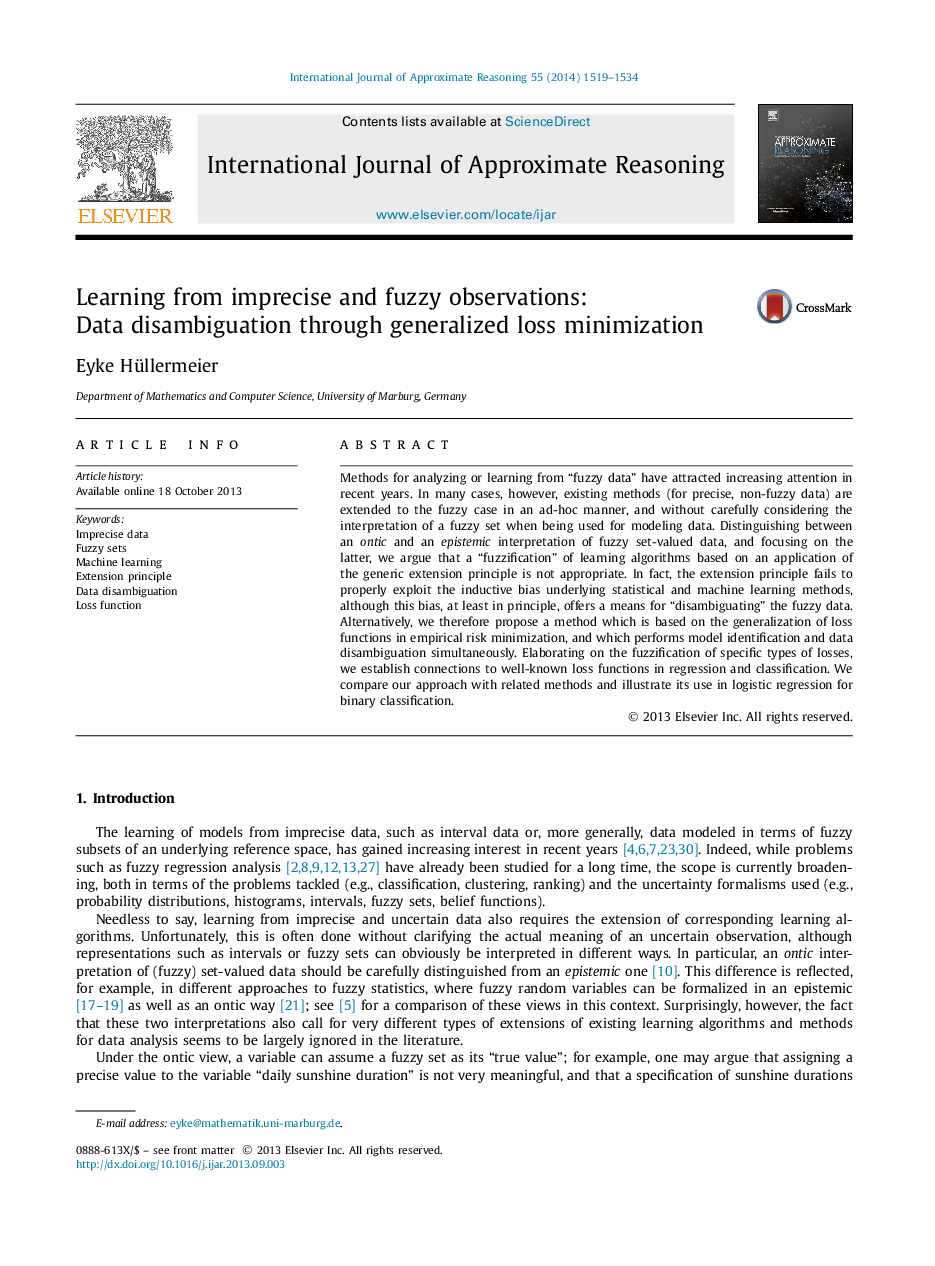| Article ID | Journal | Published Year | Pages | File Type |
|---|---|---|---|---|
| 397321 | International Journal of Approximate Reasoning | 2014 | 16 Pages |
•A new framework for learning from imprecise/fuzzy data, based on the modification of loss functions in empirical risk minimization.•We show that several well-known loss functions used in the literature can be seen as special cases of our generic model.•We develop concrete instantiations of our framework for regression and classification problems.•We compare our new proposal with related approaches from a conceptual point of view.•We present first experimental results on synthetic data that suggest the effectiveness of our method in dealing with imprecise and fuzzy data.
Methods for analyzing or learning from “fuzzy data” have attracted increasing attention in recent years. In many cases, however, existing methods (for precise, non-fuzzy data) are extended to the fuzzy case in an ad-hoc manner, and without carefully considering the interpretation of a fuzzy set when being used for modeling data. Distinguishing between an ontic and an epistemic interpretation of fuzzy set-valued data, and focusing on the latter, we argue that a “fuzzification” of learning algorithms based on an application of the generic extension principle is not appropriate. In fact, the extension principle fails to properly exploit the inductive bias underlying statistical and machine learning methods, although this bias, at least in principle, offers a means for “disambiguating” the fuzzy data. Alternatively, we therefore propose a method which is based on the generalization of loss functions in empirical risk minimization, and which performs model identification and data disambiguation simultaneously. Elaborating on the fuzzification of specific types of losses, we establish connections to well-known loss functions in regression and classification. We compare our approach with related methods and illustrate its use in logistic regression for binary classification.
